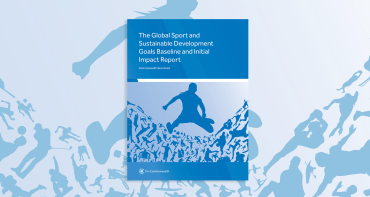Speaker: Commonwealth Secretary-General Kamalesh Sharma
Excellencies, distinguished representatives and partners, ladies and gentlemen – good morning and welcome!
It is good that so many of you have been able to come to this roundtable. I am pleased to have this opportunity of joining you to say a few words as you set out to advance the immensely important work of reconciliation. This is a most significant gathering for the Commonwealth. Our hope and objective for the week is two-fold: first, that you will find practical ways of carrying forward the work of the Commonwealth Commission on Respect and Understanding that was chaired by Nobel Laureate Professor Amartya Sen; and second, that we can contribute – as is our Commonwealth hallmark – to global wisdom by developing a clear picture of best practice in achieving lasting reconciliation.
The Commission on Respect and Understanding was established in 2005 at the request of Commonwealth Heads of Government with a mandate to the Secretary-General that we should “explore initiatives to promote mutual understanding and respect among all faiths
and communities in the Commonwealth”. The Commission’s 2007 report, Civil Paths to Peace, was republished in 2011 together with Amartya Sen’s essay, Violence and Civil Society, in a single volume entitled Peace and Democratic Society. We have copies available
for you to take away this week.
We are particularly fortunate to have with us today Lord Alderdice, who was a member of that Commission, and can therefore help link your discussions to its findings and guidance, as well as to his own experience in Northern Ireland.
Let me draw attention to five particular findings of the Commission:
- It drew attention to the significant and constructive role the Commonwealth can play by using dialogue and multilateralism to deal with issues related to violent conflict.
- That in doing so, we should recognise the positive and constructive role which civil initiatives can have in building peace.
- The Commission also underlined the critical role women and youth must play in reconciliation.
- It identified media and education as crucial components of true transformation.
- And lastly, while stressing that precise policies must depend on specific circumstances, and vary from country to country, it emphasised the overwhelming importance of agreeing on some general policy priorities.
It is with these conclusions of the Commission in mind that we hope, over the next three days, to move towards deeper understanding of what constitutes the core elements of effective and sustainable reconciliation, including truth, justice and accountability.
This roundtable also takes place within the framework and the direction expressed by Heads of Government collectively in the Charter of the Commonwealth recently adopted by all our
member states. Articles II and IV, headed respectively ‘Human Rights’ and ‘Tolerance, Respect, and Understanding’ are of particular relevance.
I am pleased that we will have the opportunity to hear from Dr Pablo de Greiff, UN Special Rapporteur on the promotion of truth, justice, reparation, and the guarantees of nonrecurrence, with regard to international standards relating to these matters.
You will no doubt be aware that during the first cycle of the Universal Periodic Review, several Commonwealth member states accepted recommendations that included taking all necessary measures to implement national reconciliation strategies and to reinforce related
mechanisms; to follow up on recommendations from truth and reconciliation commissions; and to share experiences regarding their national reconciliation mechanisms. Our Commonwealth contribution is to help our member states get to where they want to be – in
this case to help build capacity and advance reconciliation.
The focus over these three days will also be on practical experience gained from existing models of judicial and non-judicial mechanisms of transitional justice, including truth commissions, memorialisation, restorative justice and criminal prosecution. Through exploration of case studies shared by Kenya, Papua New Guinea, Rwanda, Sierra Leone, South Africa, Sri Lanka, Uganda and Northern Ireland, we hope to broaden and deepen understanding of how post-conflict challenges have been dealt with in a range of specific contexts, and to glean new insights into best practices.
This is a valuable opportunity to assess how the important perspective of gender is integrated into the institutional structures, processes and outcomes of transitional justice mechanisms. Our other cross-cutting Commonwealth priority is to consider the specific needs of the most vulnerable in post-conflict situations. Women, children, and young people bring their own distinctive contributions to reconciliation.
The Commission on Respect and Understanding referred to the Commonwealth’s long tradition of learning through critical examination of past policies; it reminded us that “the history of the Commonwealth is a testament to the importance of open-mindedness in undertaking scrutiny for prospective improvement”. I am confident that by adopting such an approach this roundtable will bring lasting benefits to citizens in many member states of the Commonwealth.
I conclude by quoting the words of Archbishop Desmond Tutu at the time of his appointment as Chair of the South African Truth and Reconciliation Commission:
True reconciliation is never cheap, for it is based on forgiveness which is costly. Forgiveness in turn depends on repentance, which has to be based on an acknowledgement of what was done wrong, and therefore on disclosure of the truth. You cannot forgive what you do not know.
Those sobering words remind us of the gravity of the task of reconciliation, and therefore the importance of bringing to it the mutual support, respect for diversity, and richness of multiple identities that are fundamental to our Commonwealth principles and approach.


